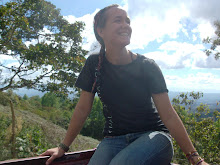The country requires that each student receives an education up until 6th grade. That said, Honduras has had some of the lowest rates of access to education in all of Central America. For those that do have access, education may mean a one room schoolhouse, equipped with one teacher for all six grades. Books are a rarity, so class time is mostly spent copying the teacher’s book or information from the board (just another example of how memorizing is engrained in their educational structures).
When I started teaching the 22 seventh-graders, I was shocked to see what was for me an unruly classroom. For example, they were unfamiliar with the concept raising their hand to participate (something that I learned from a young age). Instead, whoever knew the answer would shout it out and then the rest of the class would follow and repeat the answer. Since I wasn’t allowed the opportunity to call on students, it was difficult to make sure that not just a few people were answering all of the questions. (Now that several weeks have passed, they’ve become more accustomed to raising their hands and being called on.) In a classroom in the aldea (where these students had been educated up until 6th grade), it’s probably pretty easy for students to fall behind without individualized attention.
At the end of each semester the students take a state-written final exam for each subject. I’ve looked at the Spanish exams and they’re pretty pathetic. They require no critical thinking (surprise, surprise) and are a mere two pages… mostly multiple-choice. Did I mention that the exams are worth 70% of their overall grade? If the students fail the first time, they can take it a second time right away, and then a third time at the end of the year. We’ll see how it goes this year, but last year there was a good number who had to re-take the exams.
So needless to say, there are a lot of differences within education and it's been challenging to get used to.

No comments:
Post a Comment